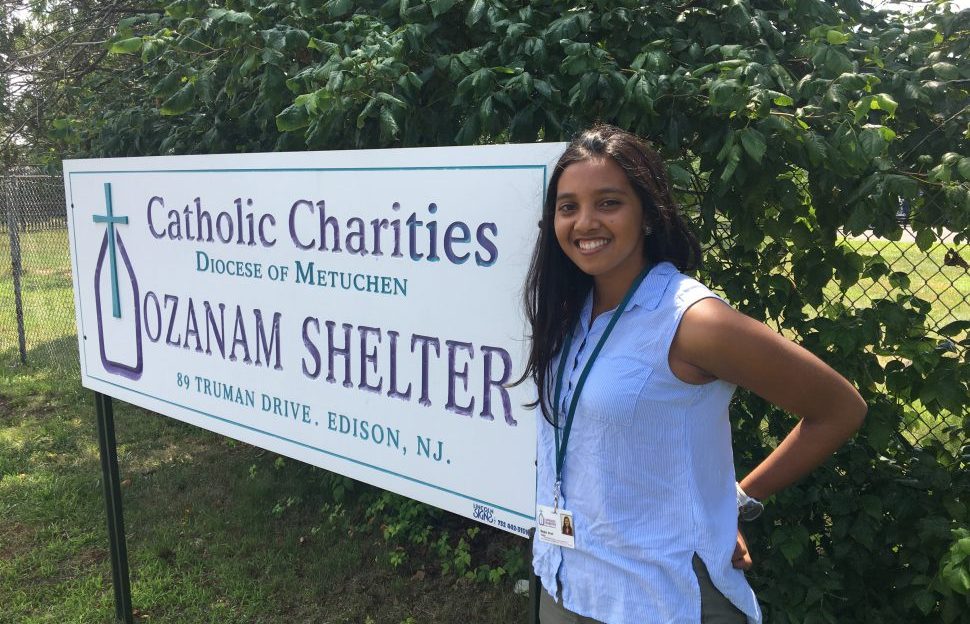Eli Kaberon, September 15, 2017
When Megha Shah, a junior at the Ernest Mario School of Pharmacy at Rutgers University, was assigned a summer internship at the Ozanam Family Shelter in Edison, New Jersey, she wanted to apply her interests as a student to her work there. Shah was unsure how to start conversations about healthy habits with the single women and families at the shelter. She decided to create a survey of topics and ask the residents what interested them.
The results surprised her.
Instead of wanting to learn about heart disease or the value of exercise, issues Shah expected to be popular, the people staying at Ozanam picked different subjects: personal safety, women?s health, medication safety, and dental and oral hygiene. Shah used the results of the survey to create four classes on the topics, revising the classes, as needed, to suit the residents? evolving needs and take advantage of the knowledge she acquired at Rutgers.
?I gave them lots of different options and then I explained what each topic would include,? Shah said. ?And then as I started doing the classes, I added more information. So, for example, in the staying safe class, it was supposed to include medication safety. But being in pharmacy school I had a lot to say on medications, so I decided to make that its own class, which I think was very beneficial to them.?
Having never worked in a family shelter prior to her internship, Shah said she wasn?t sure what to expect. Because the facility was not focused on providing clinical services, it was mostly staffed with social workers who worked on residents? mental health and housing needs. That left Megha to be the facility?s go-to source for physical health concerns, a role the college student took to with pride.
?It?s an emergency shelter,? Shah said. ?So, often, the top priority is finding a way out of there, finding a home, getting their family together. They?re not thinking about [their immediate physical needs]. [So] when other things are falling apart around them, they could maintain some sense of composure.?
Shah also learned that every patient required a different type of teaching. Instead of waiting for residents to make appointments, Shah would leave her office, sit and talk with people at lunch and try to be a part of the community. ?That?s when I got the best feedback, when I got out of the office,? she said. Some women at the shelter were comfortable right away discussing serious health issues with a college student, while others needed some time. By building a more personal bond with the residents, Shah made it easier for anyone who had a health question or concern to get the attention they needed.
Rebecca Rhoads, Service Area Director for Housing and Social Concerns at Catholic Charities, which runs the shelter, said Shah ?hit the ground running? at the shelter.
?Her work was phenomenal. She was eager to do so much. It?s amazing what she accomplished in six weeks.?
With Shah back at school, this specific program has been put on hold until a new Rutgers student begins an internship there, though the resources and programs are available at Ozanam to continue providing health education and services to residents in part due to Shah?s efforts.
Now when residents leave the shelter, they are given a packet Shah created that highlights ways to stay healthy, helps them maintain their medication regimens and lists affordable healthcare options in the area, which extends the impact of Shah?s work.







 See what's coming up live on B1G+ every day of the season at BigTenPlus.com.
See what's coming up live on B1G+ every day of the season at BigTenPlus.com. 